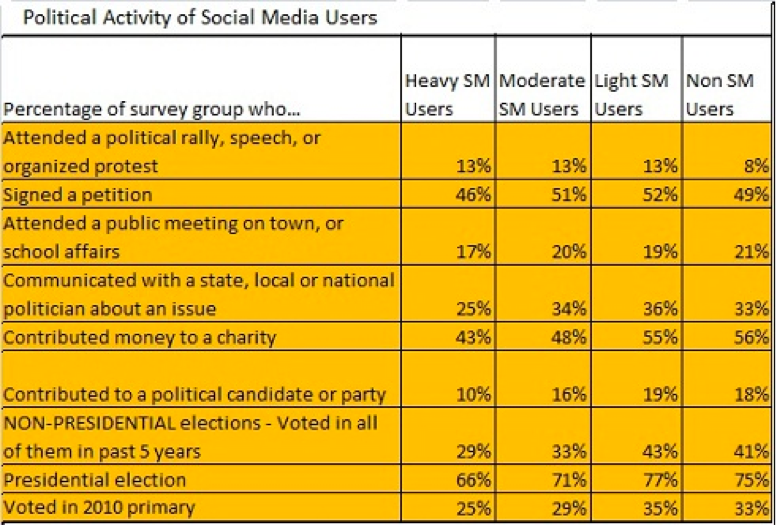 Nonprofits, businesses, and entrepreneurs have been busy focusing on growing their social networking presence, but how valuable are active social media users to your organization? Have you ever dived into your data to determine if it's the more active social media users connected to your organization that are donating more money? Are they donating more often than non social media users? Are they signing more petitions or meeting with their Members of Congress to advocate for legislation your organization is supporting more than members who aren't using social networks?
Nonprofits, businesses, and entrepreneurs have been busy focusing on growing their social networking presence, but how valuable are active social media users to your organization? Have you ever dived into your data to determine if it's the more active social media users connected to your organization that are donating more money? Are they donating more often than non social media users? Are they signing more petitions or meeting with their Members of Congress to advocate for legislation your organization is supporting more than members who aren't using social networks?
A recent study by Resonate Networks concluded that “heavy social media users are less involved in the offline world than their friends who spend less time on Facebook or other social sites” and donate less money to charity than non social media users.
Check out the highlights.
- 46% of heavy social media users signed a petition as opposed to 52% of light social media users.
- 25% of heavy social media communicated with a state, local or national politician about an issue they cared about as opposed to 36% of light social media users.
- 43% of social media users contributed money to charity as opposed to 56% who don’t use social networks.
- 10% of social media users contributed money to a political candidate as opposed to 18% of non social media users.
- More active U.S social media users attended a political rally, speech or organized a protest as opposed to non social media users. The difference was about 3%.
What’s the Value of a Facebook Like?
Given Facebook’s algorithm, which prioritizes how popular fanpages and updates are by users as well as timely content, the chances of your fanpage showing up in fans streams is slim. The recent 2011 eNonprofit Benchmarks Study said that most people don’t visit a page often after “liking” it – in fact the number of actual page views per 1000 users was very low at 4-7 per day.
This is one of the reasons that I personally favor FB Groups over fanpages at the moment because it’s much more communal and conversational and I find that it shows up in people’s streams more often. Of course FB Groups and fanpages serve different purposes, so FB Groups will not be the right fit for many organizations.
What do you think about the studies findings?



COMMENTS